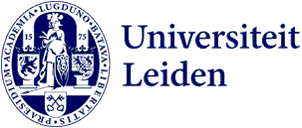
Students help make Maldives more fertile
Its idyllic setting and white sandy beaches have made the Maldives a hotspot for tourists. This provides an income but is a problem for the fragile natural environment. Students from various universities worked with the local people to make the soil more fertile. How did they go about it?

Four students have quite literally tried to make the earth a bit better during their studies. They did so in the Maldives, a tropical archipelago in the Indian Ocean. ‘It was an unforgettable and educational experience’ is Leiden Bio-Pharmaceutical Sciences student Sterre Breedijk’s take on the stay. The four recently spent three months on Addu, the largest island in the Maldives, where they worked together with locals on the Sustainable Soil project.
Leiden-Delft-Erasmus
The students are all taking the TU Delft minor in Internationaal Ondernemerschap & Ontwikkeling and come from different universities and degree programmes: Bio-Pharmaceutical Sciences, Computer Science, Aerospace and Economics. The Leiden University, Delft University of Technology and Erasmus University Rotterdam (LDE) alliance makes it easier for students to take a minor at one of the other two universities.
Price of the tourism industry
With climate change and rising sea levels, the Maldives are vulnerable. The archipelago is also struggling with the effects of tourism. ‘Addu was originally a sparsely populated island with little in the way of fertile soil’, Breedijk explains. ‘In the past that was often just enough for the local population. But in recent decades Addu and the other islands have attracted huge numbers of tourists who all need food and drink.’
The tourist industry provides an income but the price is high. Most food and products are imported and that means a lot of CO2 emissions. Local farmers are also trying to grow more. ‘Some grow sought-after fruits, for example, which take a lot of nutrients from the soil. And they use chemicals that further deplete the soil.’
-

Compost kits in the Maldives. Photo: Sustainable Soil. -

The students worked together with the local community. Photo: Sustainable Soil. -

Waste in the Maldives. Photo: Sustainable Soil.
Tourists should be more aware of the effects of their stay in such a vulnerable area.
Working with locals
The local community want to make their island more sustainable but do not always have the knowledge and financial resources to do so, says Breedijk. They are working on various projects with international NGOs and universities. For their LDE minor, the four students were tasked with making the soil more fertile. One way they did so was with 20 compost kits, sponsored by crowdfunding, that they assembled with the local community. The kits were like lasagne but then with layers of chicken wire and organic waste. After two months the waste had been turned into compost that fertilises the soil. The collaboration with the farmers and local community was good. ‘We provided the materials and help with implementation and they could teach us a lot about growing fruit and vegetables in such a location. The community will continue to implement and maintain the compost kits.’
Waste problem
Alongside fragile soil, the Maldives also face a big waste problem because there is hardly any room to process all the waste produced. ‘There is even an island’, says Breedijk, ‘that is called Trash Island because it is completely buried under the dumped waste from large resorts, for example.’ So they also gave guest lessons at schools on sustainability and waste processing. The young islanders in particular are trying to make the Maldives more sustainable. And tourists should be more aware of the effects of their stay in such a vulnerable place, says Breedijk.
Analytical and problem-solving
The past three months might well have been the most educational period in her studies thus far, she says. ‘It was really inspiring to work with students from other programmes and to use both analytical and problem-solving skills. We hope the project will be continued and would like to return to see how the Maldives are faring in a few years.’
Text: Linda van Putten
Photo: Asad Photo/Pexels
